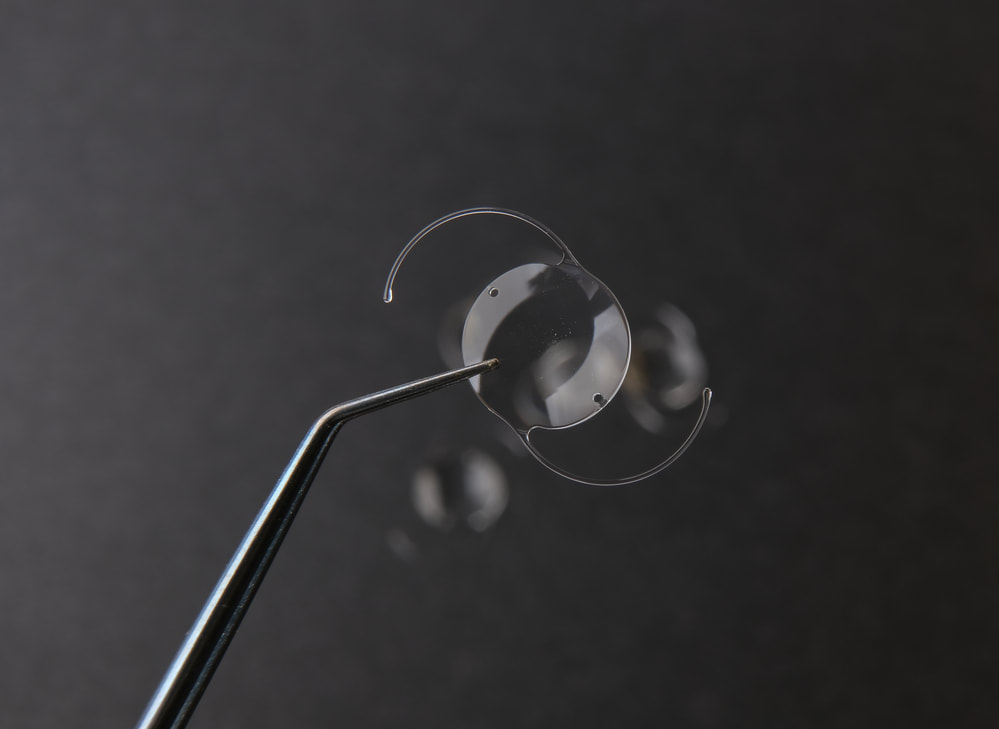What is a cataract?
A cataract develops when the lens in the eye becomes cloudy. The cloudiness leads to symptoms, such as:
Usually, cataracts start out gradually and get worse over time. Eventually, they can have a significant impact on vision if left untreated, but most cataracts are treated with surgery. What is Cataract Surgery?Different types of cataract surgery are available to correct the problem. The type of procedure recommended may vary. The two types of surgery used include laser-assisted and traditional cataract surgery. During cataract surgery, an incision is made in the cornea. Next, an opening is created in the lens. Using soundwaves, the doctor breaks up the lens and then removes it. Lastly, an artificial lens is placed in the eye. Some doctors prefer to do laser-assisted cataract surgery. During laser-assisted surgery, an imaging technique called optical coherence tomography is used to map the surface of the eye. This process allows for more precision when performing the cataract removal surgery and placing the artificial lens. The doctor also uses the laser to make the incisions in the cornea and to soften the cataract. The laser can also be used to treat astigmatism, which is an irregular cornea, at the same time. The lens is then easily removed, and finally, an artificial lens is placed similar to traditional cataract surgery. Artificial lenses may be of the traditional type, correcting either far or near vision. Specialty lenses are available that correct for astigmatism. Some patients elect to have multifocal lenses that can correct for distance, intermediate, and near vision. Newer extended depth of focus lenses can correct for distance and intermediate vision. The type of lens chosen is highly customized to the individual. Usually, cataract surgery is quick and takes about 15 minutes or less. You will be given medication and have your eyes dilated before the procedure. The doctor also numbs the eye, and you will not feel any pain during the surgery. If you feel anxious, you may also ask for medication to help you relax. How do I prepare for cataract surgery?Preparing for cataract surgery is typically easy. A couple of weeks before the surgery, your eye doctor will perform a few tests to determine the artificial lens that would work best for you. Your doctor will also give you instructions on what to do leading up to the day of surgery. The surgeon may recommend eye drops for a couple of days before the procedure to reduce your risk of an eye infection. In most cases, you are instructed to not eat or drink anything the night before the surgery. How is cataract surgery recovery?Recovery from cataract surgery is often quick and with little pain. Your surgeon will provide instructions on dealing with any discomfort. You may take over-the-counter pain relievers.
Usually, your doctor will prescribe eye drops to reduce your risk of infection and help speed recovery. Although you should see an improvement in vision quickly, it typically takes about four weeks for your eye to completely heal. While you heal, you may have some of the following symptoms:
Complications from cataract surgery are rare, but your surgeon will tell you what to watch for. If you develop any of the following signs, call your doctor immediately:
Usually, cataract surgery is successful at removing the lens and correcting the problems. Most people see an improvement in their vision within a few days. If you have any questions about cataract surgery or if you would like to ask whether an appointment with one of our eye doctors would be appropriate at this time, call our office at 508-746-8600. Kadrmas Eye Care New England is pleased to announce the addition of laser-assisted cataract surgery and office-based surgery at their new Plymouth location. Ask us if laser-assisted surgery is right for you. Comments are closed.
|
EYE HEALTH BLOGCategories
All
Archives
July 2024
|
|
Kadrmas Eye Care New England
55 Commerce Way, Plymouth, MA 02360
14 Tobey Road, Wareham, MA 02571 133 Falmouth Road (Rt 28), Mashpee, MA 02649 |
Phone Number:
1-508-746-8600 Hours: Monday through Friday — 8 AM – 4:30 PM |


 RSS Feed
RSS Feed
